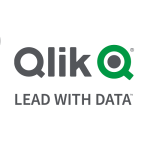What is most valuable?
The biggest feature for ODI is the fact that it uses the power of the source or target database to actually perform the ETL processing. So a typical data integration tool might have its own ETL engine, and that would be an additional server, additional costs, something else you have to maintain. ODI actually has the ability to create and generate code that runs potentially on your Oracle database, or even on a big data target, on Hadoop or somewhere like that. So, you have that flexibility, and you don't have to have that additional cost in maintenance.
A couple other additional benefits of Oracle Data Integrator would be the use of what's called a knowledge module. So this is like a code template that uses the metadata that you have available within ODI, and within your mapping, to generate that code, that then can be executed, like I said before, on the source or target system. The code will be generated in the native format of that database or that technology. So, again, you have sort of a hands-off.
These knowledge modules are built in. They can be developed and modified. So, the biggest thing, I always think, with ODI is, it fits around your data warehouse needs. Rather than taking your production, or your business, and trying to make it fit a tool, you do the opposite. You make the tool fit your business.
What needs improvement?
One thing that is included, and it's going to improve, is the integration with a configuration management tool. Right now, they integrate with Subversion. And we know in the future, there's going to be more tools implemented there for configuration management and some new features there. So right now, it's kind of one of those features that, it's been released, but it's sort of a beta version of that feature where a lot more functionality will be coming down the line.
What do I think about the stability of the solution?
So ODI is actually quite a stable product. As a testament to the product team that develops it, they're not going to release something that is extremely buggy or things like that. So, I do see that often they will release features that are highly anticipated and highly sought after. And they might release them a little early. So there's definitely patching that comes into play there, to kind of get the full solution there.
As far as stability, the Oracle Data Integrator has agents that run either in WebLogic, as a Java deployment there, or on a server as a Java agent, or a Java deployment. As long as a client has had the product implemented, with no issues there. So that's kind of the key there, you don't want to have those agents have a blip or any issues.
What do I think about the scalability of the solution?
So as far as scalability of Oracle Data Integrator, from the high availability standpoint, if you use WebLogic for your agent, you can use the clustering capability within WebLogic to create multiple nodes on different WebLogic servers. And then run your agent through that process there. So if something fails, if the main agent fails, it can fail over to the secondary agent or, again, another agent in your cluster.
How are customer service and technical support?
I'd probably put them up there around an eight, yeah. Being a system integrator of Oracle products, typically I'm on behalf of a client. So oftentimes it depends on who your client is and what their level of support is, as far as response and how things go. But I've always had great response with those guys.
Which solution did I use previously and why did I switch?
A lot of the projects I've worked on recently are Oracle VM apps projects. So, it's the folks that are in the Informatica version of VI apps, and looking at moving to the latest and greatest, which has Oracle Data Integrator behind the scenes. I'm not saying they're actually talking about using Informatica, they're just, that's what they have. And they're looking to migrate. Quite often where we come into play, ODI is typically chosen at that point. And then they call us in to help with it.
What about the implementation team?
It's not too difficult. It's tough to look at it from the perspective of someone who hasn't been doing it for a while. And oftentimes, that's what you need to kind of make that determination. But as far as just getting up and running, you can get it installed, configure an agent, quite quickly. And then the next step would really be getting ready to build a mapping. And they actually introduced in the most recent release, or maybe even when 12C came out, they introduced a feature that would basically get everything, topology, the models, all the data stores, everything, ready to go for you, just in one simple wizard. And then you could actually start building mappings quickly.
A lot of it is when they have home-grown ETL processes. So they'll manually script their ETL code. It's basically something that's difficult to maintain. So we talk about how we can use ODI to keep everything centralized. And even if we're not using ODI to actually build out mappings within the product, we might still be able to run that PL SQL or whatever it is, the script for ETL, from within ODI.
So we still have everything consolidated and contained and then the other approach, or reason for moving to ODI, would be the need to get off of that middle tier integration server. That we don't need with ODI.
Which other solutions did I evaluate?
As far as why consider Oracle Data Integrator, I think the big thing is the ability to consolidate all of your ETL into one place. Whether it's an Oracle to Oracle, source to target load, or even Oracle to Hadoop, or anything in between. SQL Server, MySQL, XML. ODI can basically talk to all of those different technologies. From a consolidation of all of your data warehouse or your data integration, if you will. And also, just use the same approach for mapping and creating processes for all of those different types of solutions. You have everything logically defined. And so when you're developing, it actually doesn't look any different than an Oracle source, and target doesn't look any different than a Hadoop source and target.
What other advice do I have?
So I would rate ODI a nine. And that's really because, just looking across the other ETL tools, so I mentioned Informatica, there's a lot of other ones out there. I've seen what ODI does from a sort of a declarative design approach, and the push-down of work to the source and target. I've seen that replicated in other tools that have come out after Oracle Data Integrator. That's a big key.
It puts it kind of at the top, if you're going to look at a scale across all of the ETL tools. The other aspect to that rating is how they're integrating a lot of the big data technologies now. And it's a big deal from an Oracle standpoint, it's kind of how things are going. And it also just makes sense to, again, keep everything consolidated in one place. You already have an investment in ODI, it makes sense to try to drive some of your other big data type Hadoop loads or whatever it may be from that same place.
Disclosure: My company has a business relationship with this vendor other than being a customer. We're a partner.
















I have used informatica, ab initio before getting into odi. Odi 12c is a big improvement as compared to its previous version.
I like the flexibility of the tool and the ease with which you do the things. It will take just few days of learning to deliver the solution you need.
If you are good on the database in which you are pushing your data, then you are good to deliver a high class etl solution with very less time in learning the tool.